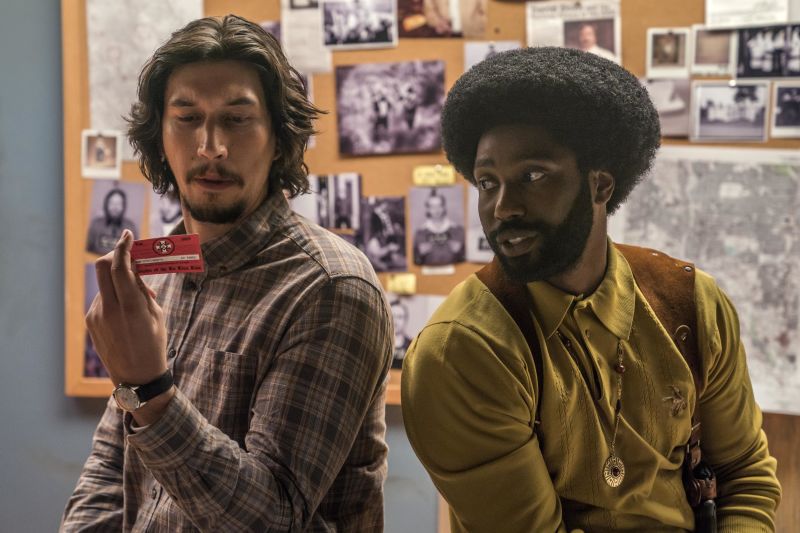AUGUST 9, 2018
What’s most exciting about Spike Lee’s “BlacKkKlansman” is not necessarily the storyline, although the real-life story of undercover cop Ron Stallworth is fascinating. It’s that Spike Lee has found his anger again. While he would likely argue that his anger has never left him, Lee hasn’t channeled it in such an artistic (or entertaining) way in decades.
“BlacKkKlansman,” which won the Grand Prix at this year’s Cannes Film Festival, focuses on Stallworth (John David Washington), who becomes the first black cop on the Colorado Springs police force in the 1970s. Finding himself sidelined with menial assignments, he takes the initiative and contacts the local Ku Klux Klan chapter to try to uncover what the Klan there is up to.
Using his “white voice” (this is the second movie this week in which a black man uses a white voice — a trend?), Ron wins over the Klan hierarchy, who want to meet him. A problem. So he is partnered up with Jewish detective Flip Zimmerman (Adam Driver), who poses as Ron for face-to-face discussions with the Klan leaders.
Flip’s impersonation of Ron is so convincing that he is brought to the attention of David Duke himself (Topher Grace, effectively chilling), and when Duke comes to town, it leads to the bizarre situation of Flip posing as Ron for the Grand Wizard of the KKK, while the real Ron stands by as security for David Duke.
Not to diminish it, but the situation really works as farce, and, despite the racism involved, there’s a very dark humor underlying even the most serious scenes, a tricky tone at which Lee is an expert.
Washington, a pro football running back in real life, displays some serious acting chops here, walking that fine line to convince us that he’s a cop but is still able to persuade Klan members over the phone that he’s one of them. And Lee provides a convincing romance between Ron and black activist Patrice Dumas (Laura Harrier), who has an Angela Davis-like image but warms to Ron’s openness.
However, the major performance of the film is by Adam Driver as Zimmerman, who while undercover, has to deny his Jewish background, a false front that Driver makes clear absolutely kills him. The facade that he has to maintain as an n-word dropping cretin goes against the very grain of his soul, and Driver shows that pain in every frame while he is undercover.
Driver has already shown that he’s willing to take risks, whether it’s in Martin Scorsese’s “Silence,” in which he played a troubled priest or as bad guy Kylo Ren in the “Star Wars” series. Here his Zimmerman is an enormously conflicted individual who is torn between the responsibilities of his job and the strains it puts on his identity. I would suspect (and hope) that this performance leads to his first Oscar nomination as Best Supporting Actor.
Despite the subject matter (and I know that this sounds weird), “BlacKkKlansman” is a whole lot of fun. Is it preachy? Of course (it’s a Spike Lee movie). But there’s an unexpected playfulness about the material that gives “BlacKkKlansman” a lift that is totally unexpected and, given the subject matter, completely welcome.
GRADE: B+












